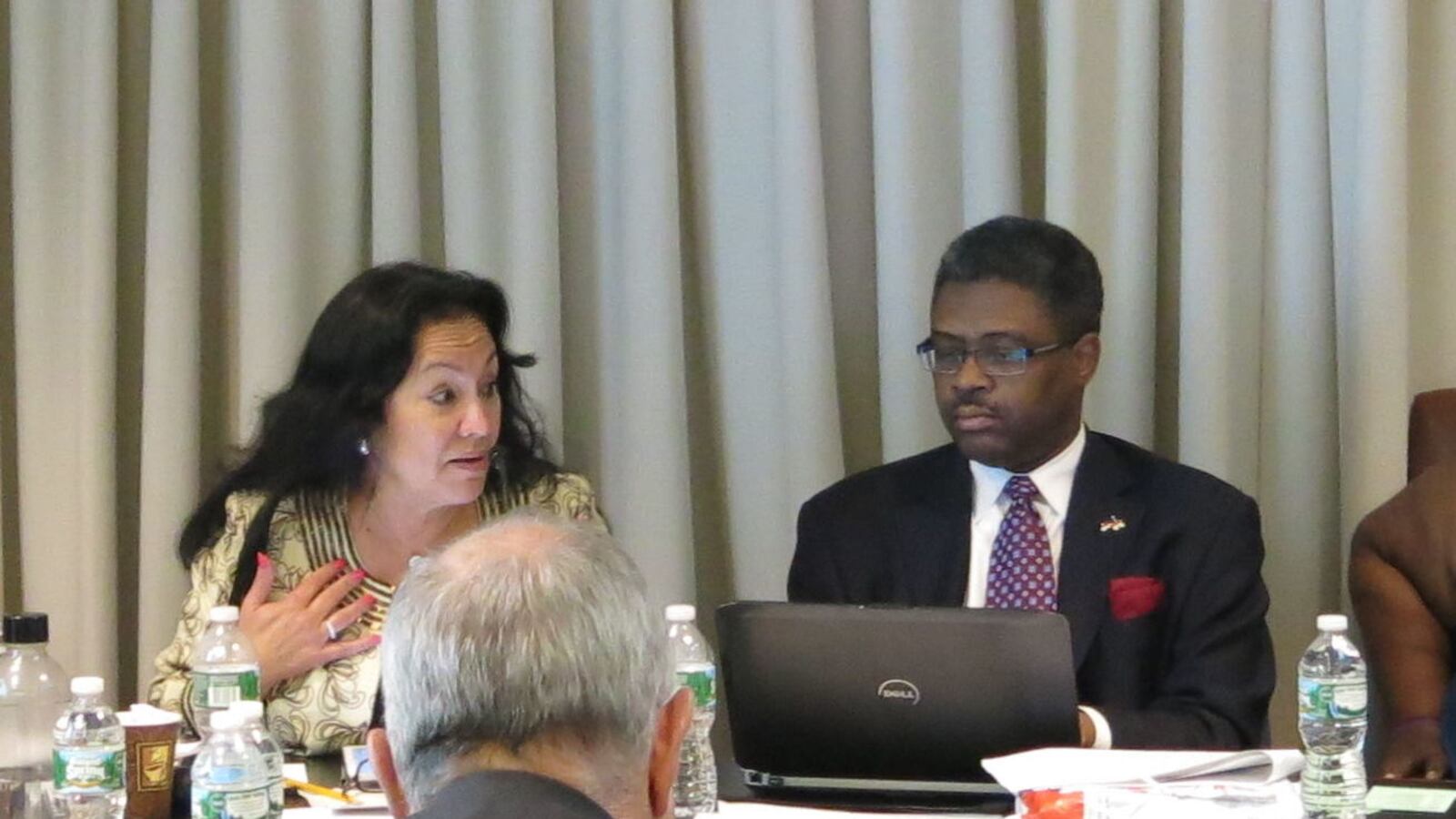The state’s education policymaking body tentatively agreed Monday to make it easier for school districts to delay overhauling their teacher evaluation systems.
The agreement came after hours of debate that strayed from the norms of a typical Board of Regents meeting, and included some bickering between members, cackles and occasional applause from the overflow audience, and a stare-down between Chancellor Merryl Tisch and Assembly members. An insurgent group of Regents was given an unwanted nickname (the “gang of seven”) and one member referenced Rosa Parks’ civil disobedience to argue for pursuing proposals that may not comply with state law.
“There are instances in America where we’ve had to break the law for purposes of social justice,” Regent Judith Johnson said.
The discord was an illustration of the increased polarization of New York’s education debates and the rise in power of a new group of Regents who oppose much of the policy changes that have defined Tisch’s reign. The seven dissenting members, most of whom are former superintendents who have been appointed in the last two years, signed their names to a position paper last week opposing much of the state’s evaluation law, which charged the Regents with deciding how the scoring and weighting would work.
The Regents approved the state education department’s proposed regulations with some changes that address the biggest concerns of the new evaluation law’s critics. In addition to making it easier to put off evaluating teachers for a full school year, the Regents also further reduced the role of state tests for districts that opt to use a second assessment to evaluate teachers.
“While there are still many points in this evaluation system that don’t benefit children or help schools, the Board of Regents did make many of the changes educators called for,” city teachers union president Michael Mulgrew said in a statement.
The changes passed without the support of six Regents members who had signed onto the paper last week: Kathleen Cashin, Betty Rosa, Judith Chin, Beverly Ouderkirk, Judith Johnson, and Catherine Collins. One Regent who signed, Josephine Finn, voted in favor of the proposals.
Districts would now have to apply for and receive just one “hardship” waiver to delay their implementation by a year, instead of two waivers as previously proposed by the State Education Department. Districts that receive a four-month waiver would be exempt from the existing Nov. 15 deadline and given until March 15, 2016 to develop and submit plans for a new system. But they wouldn’t have to actually use a new system until the following school year.
While the longer waivers appeared to be a compromise, Tisch also voted against the idea, saying that she was concerned they would be seen as outside the limits of the law.
The proposals only passed after four hours of contentious debate. At one point, Tisch turned and stared at Assembly members seated behind her as she explained the Regents’ challenge of approve regulations for a “law that was handed to us.” Because the law was approved in a larger state budget agreement, many Assembly members begrudgingly voted in favor of the new evaluation law, but are now working to amend it to provide more time for districts.
And after a Regents jokingly referred to the dissenting Regents faction as the “gang of seven,” Regent Betty Rosa rejected the nickname.
“As somebody who’s grown up with different naming and with different name-calling, all due respect, I really find it highly offensive. So for the record, I do not want to be called the gang of seven.”
“I certainly meant no harm,” said Regent James Cottrell.

